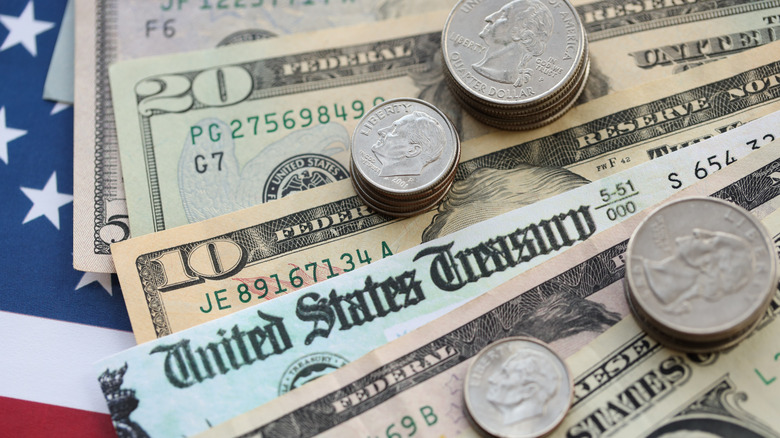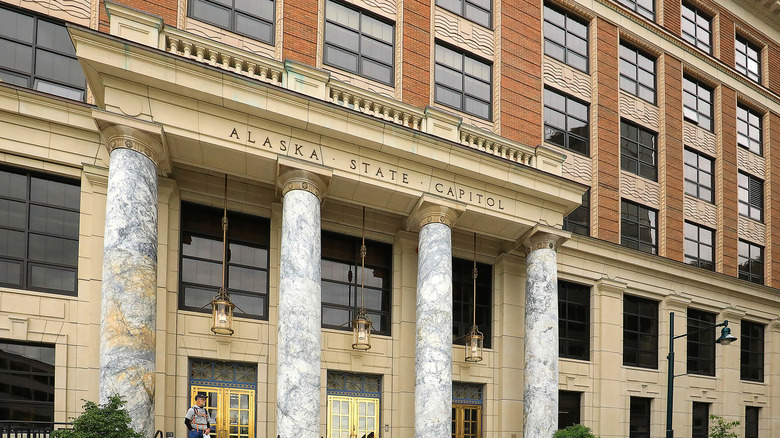Fact Check: Is A $1702 Stimulus Payment Actually Coming For Everyone This October?
It's tempting to believe the headlines claiming that "everyone" will receive a $1,702 stimulus check — but it's far from true. Once getting past the photo of President Donald Trump in this Globe Charter School article that implies a federal stimulus program, the text starts with the word "Alaskans." So, right away, the "everyone" in the headline is whittled down to people living in just one state and simply means that someone living in Alaska might qualify for this stimulus check.
The headline is misleading in another way. Although not explicitly stated, it at least implies that this is something new and different — and it's not. Ever since 1976, an amendment to the state constitution has required Alaska to invest 25% of oil company taxes and royalties into the state's Permanent Fund Dividend (PFD); as of August 31, 2025, the fund contained $83.3 billion. After meeting certain requirements, people living in Alaska can apply for and receive an annual check that's paid out through the PFD. According to the State of Alaska's Department of Revenue, the 2024 amount paid to qualifying people was $1,702 with checks of $1,000 designated for 2025. Qualified people who filed their application online and requested a direct deposit payment would be part of the October 2 disbursement round. People who filed by paper or wanted to receive a paper check would be in the October 23 round.
Who is providing the information?
Rumors claiming that stimulus checks were available for everyone are not new. A slightly different version of this rumor freely circulated in 2024, suggesting that a check like those issued in 2020 would soon arrive in people's bank accounts. Early in 2025, rumors suggested that DOGE would send stimulus checks to Americans because of all the governmental budget cuts they'd made.
When reading an article of this type, check to see what sources were cited. In the case of the Alaska check described above, a credible article would likely cite the Alaska Department of Revenue. For a federal program, sources could include the IRS, the U.S. Treasury, and/or other legitimate governmental agencies. When reading an article and trying to determine its veracity, look carefully at the particulars — including the credibility of where the article appears and its publishing date. Is this a publication with a reputation for accurate news reporting? If the publication is new, that doesn't automatically mean that this information is false. It simply means to look even more carefully at the details and to compare the text with other, time-tested publications. Who, specifically, is supposed to receive this check? When? How much? Finally, in some cases, you can contact agencies to ask for verification. So many people were calling Alaska's Department of Revenue in October 2025 that they were advising people who couldn't get through to call again later.

